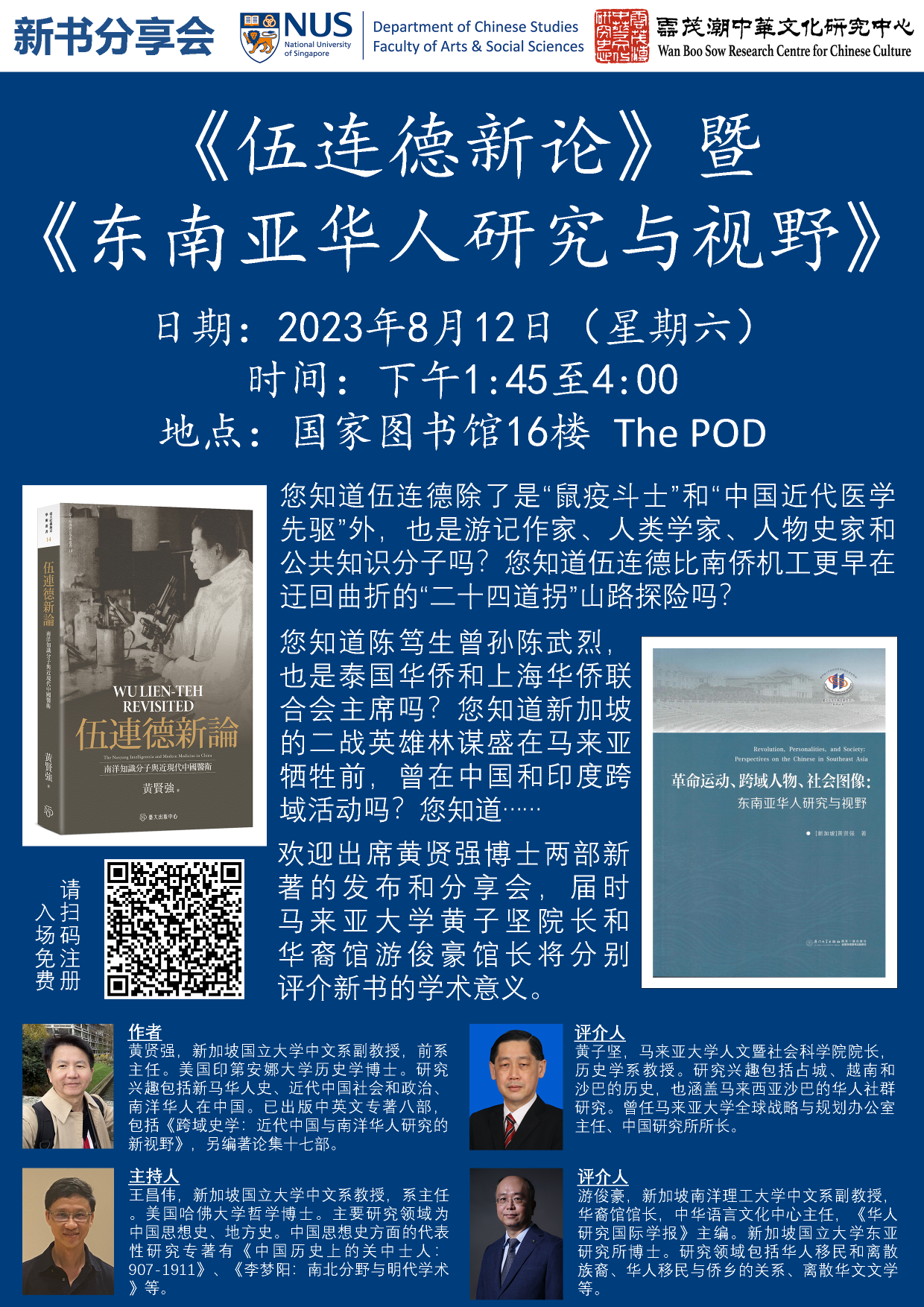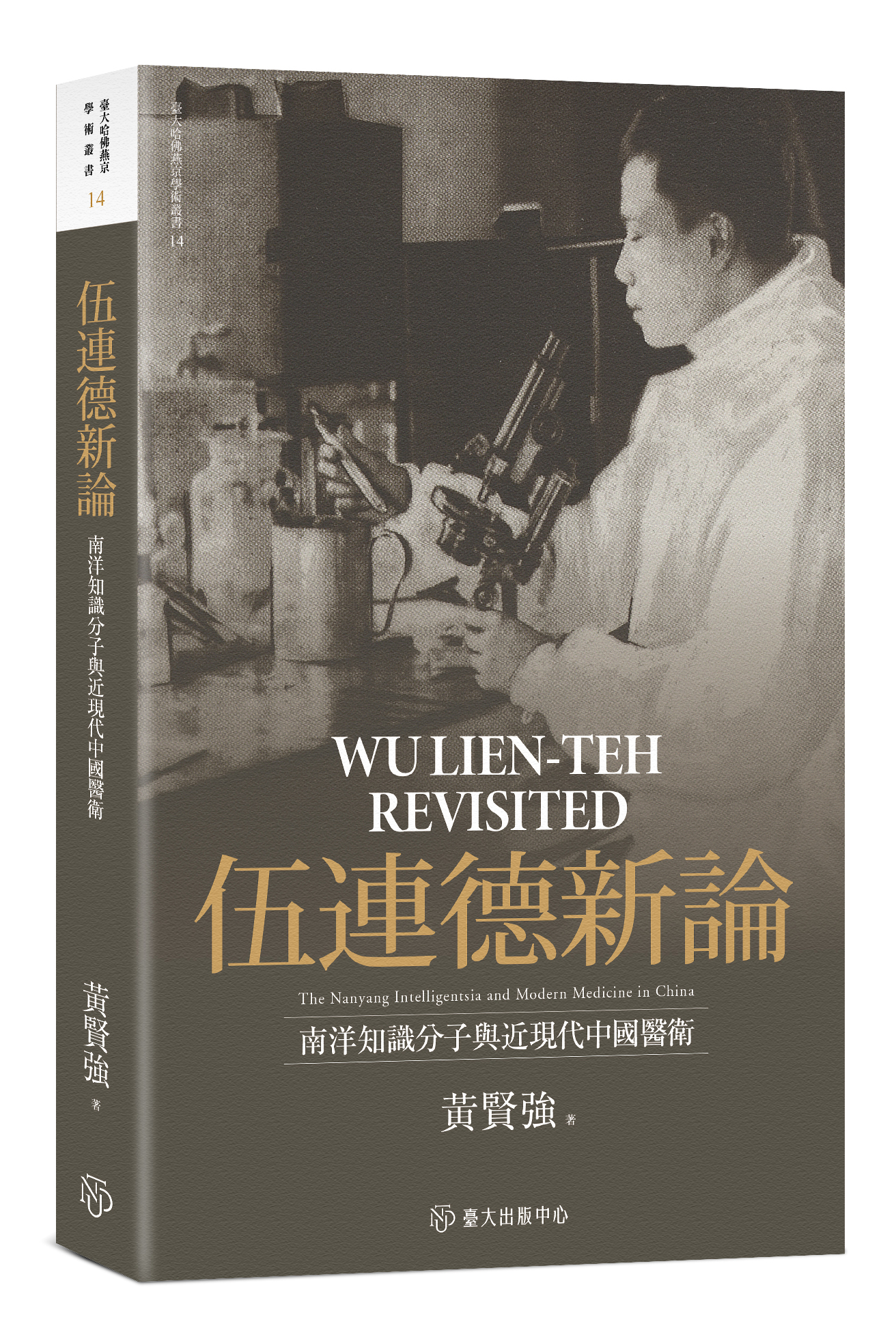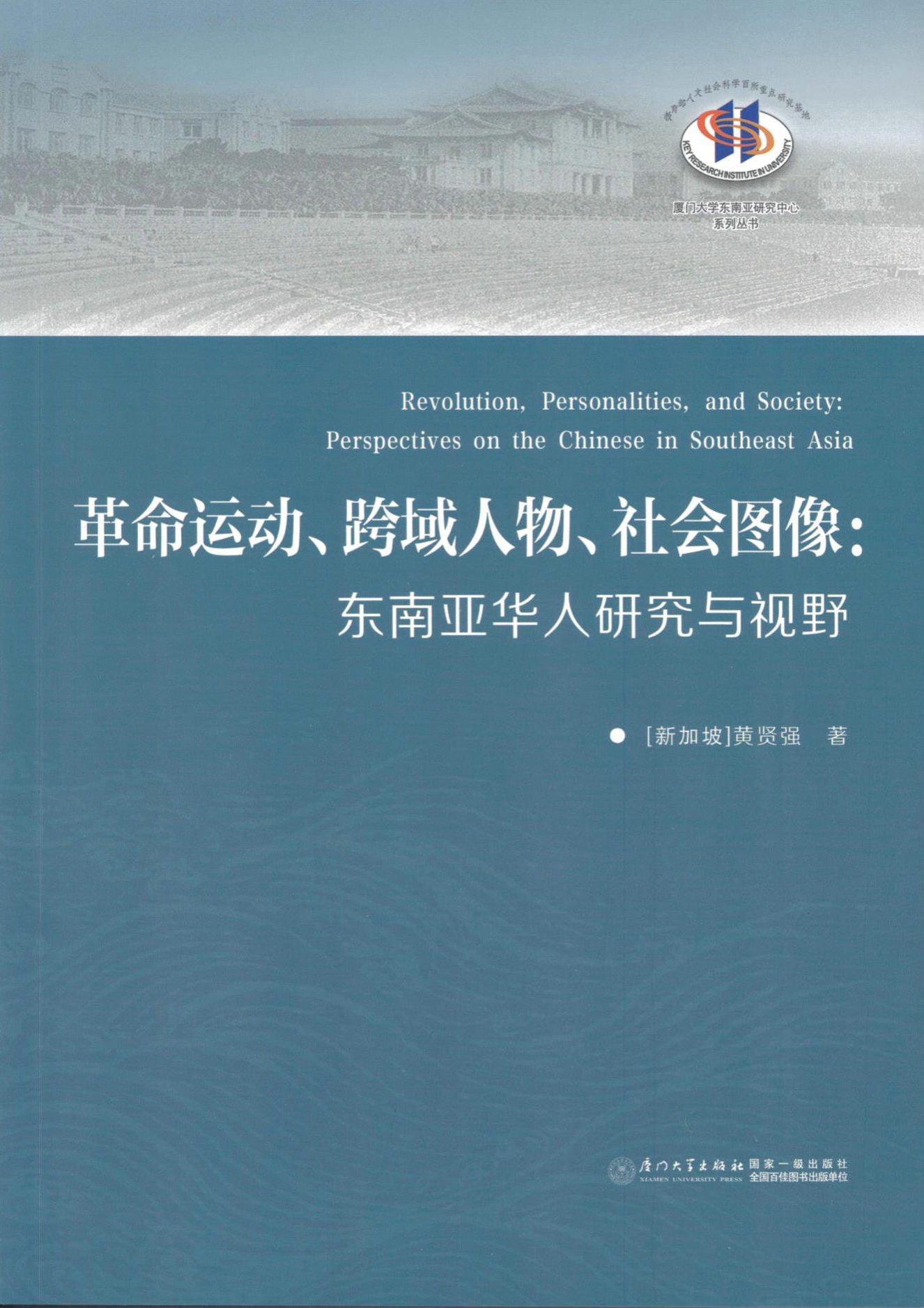《伍连德新论》暨《东南亚华人研究与视野》

Organised by the Department of Chinese Studies, the Southeast Asian Chinese and Modern China Research Group, and the Wan Boo Sow Research Centre for Chinese Culture.
Programme
| 1:45pm | Registration |
| 2:00pm | Welcome Remarks by Chair, Prof Ong Chang Woei 王昌伟教授 |
| 2:10pm | Presentation by Author, A/Prof Wong Sin Kiong 黄贤强副教授 |
| 2:30pm | Presentation on Wu Lien-Teh Revisited: The Nanyang Intelligentsia and Modern Medicine in China《伍連德新論: 南洋知識分子與近現代中國醫衛》by Discussant, Prof Danny Wong 黄子坚教授 |
| 2:45pm | Presentation on Revolution, Personalities, and Society: Perspectives on the Chinese in Southeast Asia《革命运动、跨域人物、社会图像:东南亚华人研究与视野》by Discussant, A/Prof Yow Cheun Hoe 游俊豪副教授 |
| 3:00pm | Q & A and Discussion, Moderated by Prof Ong Chang Woei 王昌伟教授 |
| 3:30pm | Refreshments |
Please register for the event here!
About the books

This book re-examines the life of Wu Lien-Teh (1879-1960) across geographical boundaries and interdisciplinary fields. Wu Lien-Teh is the renowned “Plague Fighter” and the “Pioneer of Modern Medicine” in China, but his work as a public intellectual, diplomat, social activist, humanist, travel writer, and scholar of Chinese history and culture has long been ignored. This book focuses on how and why Wu Lien-Teh recruited a group of Nanyang talents to China, how he laid the foundation for modern China’s medical and public health system, and how he introduced Chinese medicine, history, society, and civilization to the Western world. Wu Lien-Teh could be characterized as the pivotal figure in the interaction between the history of epidemic prevention and medicine, the history of the Chinese in Southeast Asia, and the history of knowledge production and exchange in modern China. In short, this book re-evaluates the man that is Wu Lien-Teh: from his personal identity and career to his leadership of the Nanyang intellectuals, his work in building a modern medical and public health system in China, and his humanitarian activities. It provides a multi-dimensional perspective for readers to understand his place and significance in modern Chinese history.

The beginning of the 20th century marked a new phase for the Chinese society in Southeast Asia. Focusing on Singapore and Malaysia, located in the centre of Southeast Asia, this book looks at the observed changes in three areas. The first was the awakening of Chinese political consciousness, especially the rise of patriotic consciousness and nationalism. This was closely linked to the arrival of Kang Youwei, who advocated for constitutional monarchy, and the revolutionary leader Sun Yat-sen, in Southeast Asia, as well as propaganda by, mobilization of and enlightenment of their supporters. The second was increased cross-regional activities, including movement between China and Southeast Asia by local Chinese businessmen, intellectuals, and immigrant Chinese leaders. The third was the establishment of many associations, schools, temples, newspaper presses, etc., with the increased Chinese immigrant population and the growing complexity of the society. This differs greatly from the situation in the 19th century, especially with the founding of new study halls that significantly influenced the future development of Chinese society. The 12 chapters of this book discuss these changes and trends in the first half of the 20th century.

